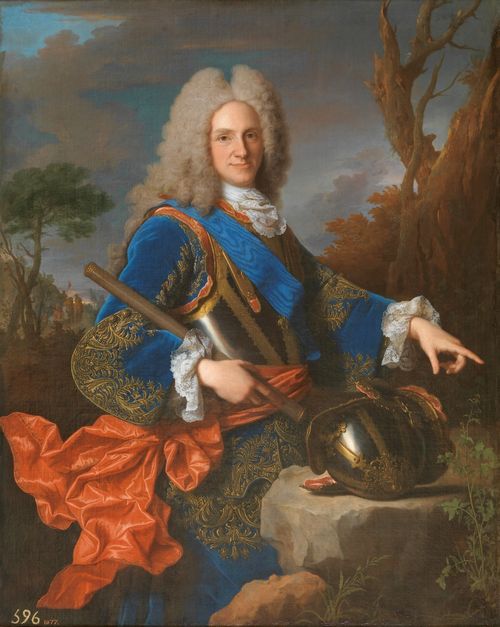Philip V

Philip V, King of Spain, by Jean Ranc (Copyright © Museo Nacional del Prado)
Philip V was King of Spain from 1 November 1700 to 14 January 1724 and again from 6 September 1724 to his death in 1746. His total reign (45 years and 26 days) is the longest in the history of the Spanish monarchy.
Philip was born into the French royal family (as Philippe, Duke of Anjou) during the reign of his grandfather Louis XIV. He was the second son of Louis, Grand Dauphin, and was third in line to the French throne after his father and his elder brother, Louis, Duke of Burgundy. Philip was not expected to become a monarch, but his great-uncle Charles II of Spain was childless. Philip's father had a strong claim to the Spanish throne, but since Philip's father and elder brother were expected to inherit the French throne, King Charles named Philip as his heir presumptive in his will. He ascended the Spanish throne in 1700, as the first member of the House of Bourbon to rule as King of Spain.
The following year, he married his second cousin Maria Luisa of Savoy, with whom he had four sons; their two surviving sons were the future Spanish kings Louis I and Ferdinand VI. Maria Luisa died in 1714, and Philip remarried to Elisabeth Farnese. Philip and Elisabeth had seven children, of whom the eldest was the future Charles III of Spain.
It was well known that the union of France and Spain under one monarch would upset the balance of power in Europe, and that other European powers would take steps to prevent it. Philip's accession in Spain provoked the 13-year War of the Spanish Succession, which continued until the Treaty of Utrecht forbade any future possibility of unifying the French and Spanish crowns while confirming his accession to the throne of Spain. It also removed the Spanish Netherlands and Spanish-controlled territories in Italy from the Spanish monarchy.
In 1724, Philip abdicated in favour of his son Louis. The new king died later that year, and Philip took the throne again. As a result of his depression, Queen Elisabeth held control over the Spanish government. When Philip died in 1746, he was succeeded by his son Ferdinand.
